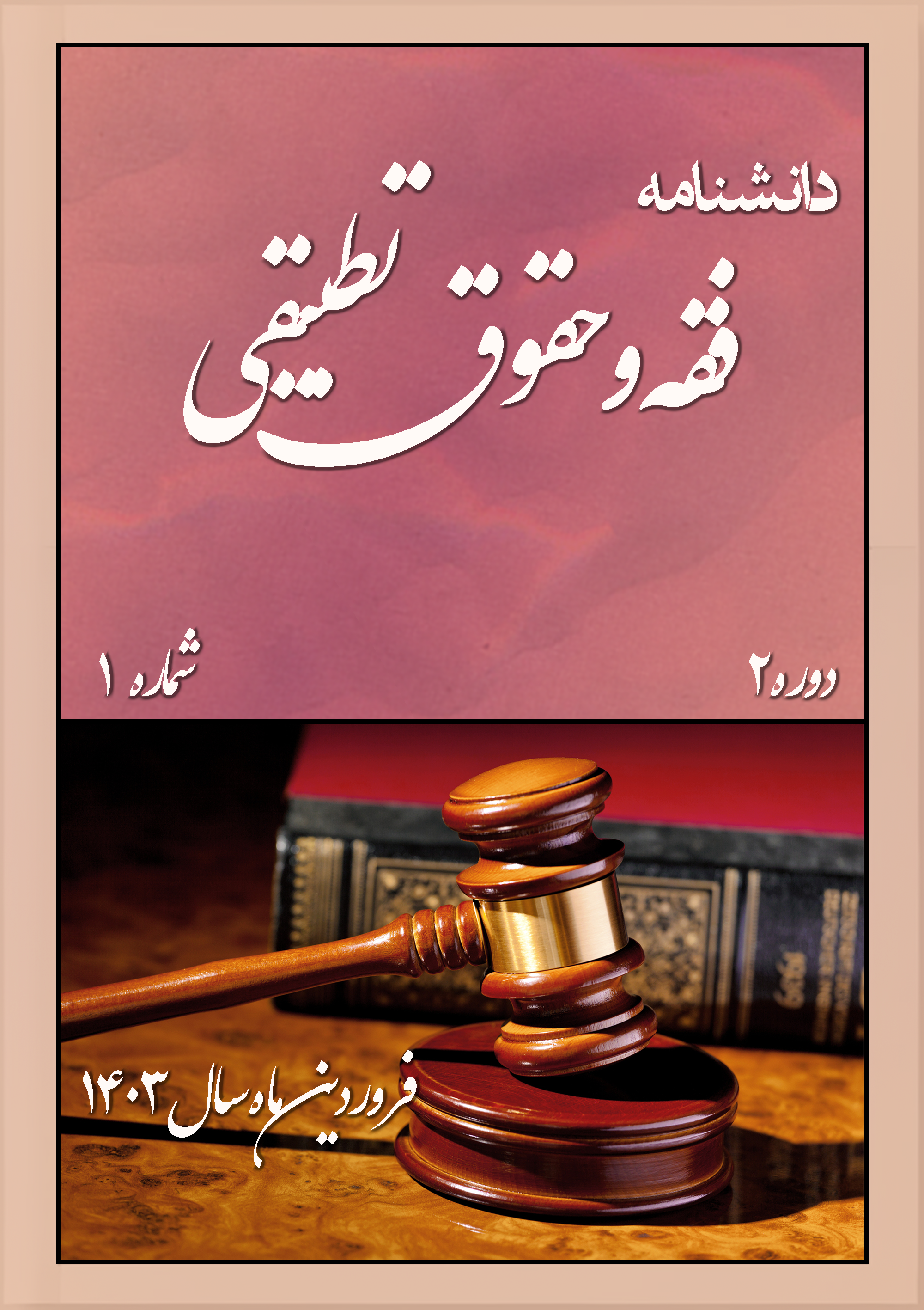Examining the Conflicts Between the Foundations of Human Rights in Islamic Teachings and the Universal Declaration of Human Rights
Keywords:
fundamentals of human rights, Islamic teachings, Universal Declaration of Human Rights, Inherent human dignityAbstract
Various perspectives exist regarding human rights in the Qur'an and other Islamic sources. The issue of human rights is considered one of the most important and prominent topics in human life, particularly in the Holy Qur'an and Islamic Sharia. The present paper aims, through a library-based and analytical method, to compare and examine the Universal Declaration of Human Rights in light of Islamic teachings, identifying and analyzing points of conflict. The findings revealed that the rights outlined in the Universal Declaration of Human Rights are not comprehensive. Human rights in Islamic teachings are superior due to their holistic nature and the dominance of divine law in their formulation. Despite the numerous commonalities between the legal foundations in Islamic teachings and those in the Universal Declaration of Human Rights, the differing perspectives on the origin of rights and the nature of humanity have led to significant divergence. The drafters of the Declaration generally adopt a one-dimensional approach in the context of civil society and do not pay adequate attention to the divine, spiritual, and eschatological aspects of human existence. In other words, the Universal Declaration of Human Rights is largely anthropocentric, whereas human rights in Islamic teachings are fundamentally theocentric.
Downloads
References
Ansari Baygani, A. (2022). Examining the Fundamentals of the Universal Declaration of Human Rights from the Perspective of Islamic Philosophy
Badi'e Abadi, M. R. (2015). A Comparative Study of the Universal Declaration of Human Rights with the Teachings of the Bible
Barghamadi, M. (2021). Comparing the Sociological Foundations of Human Rights from the Perspectives of Islam and the West
Elahitabar, A. (2013). An Introduction to Liberalism, Review and Criticism of the Foundations. Sahifeh Publication.
Eslami, S. H. (2012). The Universal Islamic Declaration on Human Rights and the Problem of Inequalities of Rights between Men and Women. Two Quarterly Journal of Human Rights, 7IS - 2, 81-110.
Habibzadeh, T., & Rabi'ezadeh, A. (2024). Current trends in Views on Islamic Human Rights After the Islamic Revolution. Quarterly Journal of Islamic Law, 21(80), 73-94.
Javadi Amoli, A. (1996). Philosophy of Human Rights. Asrar Publication.
Johnson, G. (1999). La Déclaration universelle des droits de l'homme: 40e anniversaire. Ney Publication.
Kadivar, M. (2003). Human Rights and Religious Intellectualism. Aftab Journal, 3(28).
Katouzian, N. (1978). Introduction to the Science of Law. Tehran University Publication.
Khorsandi Shamami, Y., Bagherzadeh Aval, M. R., Hosseini, S. E., & Kord Firouz Jayi, Y. A. (2022). Explaining the Principle of Freedom and Enumerating Some of the Rights Derived from it, from the Perspective of Allameh Tabataba'i The Development of Humanism in Western Philosophy. Two Quarterly Journal of Andishehaye Hoghuq Omomi, 12(1), 39-52.
Mahdavi, M. A. (2018). Fundamentals of Human Rights from the Perspective of the Quran and Its Comparison with the UN Charter
Mesbah Yazdi, M. T. (2001). Islamic Legal Theory. Imam Khomeini Institute Publications.
Mir Mousavi, S. A., & Haghighat, S. S. (1997). Theoretical Foundations of Human Rights in Islam. Qabasat Magazine(5&6), 154-175.
Moazen Safayi, A. (2021). The Semantics of Human Rights in the Treatise on Rights of Imam Sajjad and the Universal Declaration of Human Rights
Mojtahed Shabestari, M. (2000). A Critique of the Official Reading of Religion. Tarh No Publication.
Sadeghi Jabdarghi, S. (2011). Comparative Analysis of the International Bill of Human Rights, the Islamic Declaration of Human Rights, and Human Rights-related Issues in the Constitution of the Islamic Republic of Iran
Sadr, S. M. (2003). The Principles of the Declaration of Human Rights in the Balance of the Quran. Quarterly Journal of Quranic Researches(34).
Sharifi, A. H. (2004). Moral Contractivism, A Theory of the Justification of Moral Propositions (1). Journal of Ma'atef(22).
Vincent, A. (2013). Modern Political Ideologies. Qoghnous Publication.
Yazdi, M. (1996). Constitution for All. Amir Kabir Publication.
Downloads
Published
Submitted
Revised
Accepted
Issue
Section
License
Copyright (c) 1403 نوید مسلمی, اکبر احمدی (نویسنده)

This work is licensed under a Creative Commons Attribution-NonCommercial 4.0 International License.










